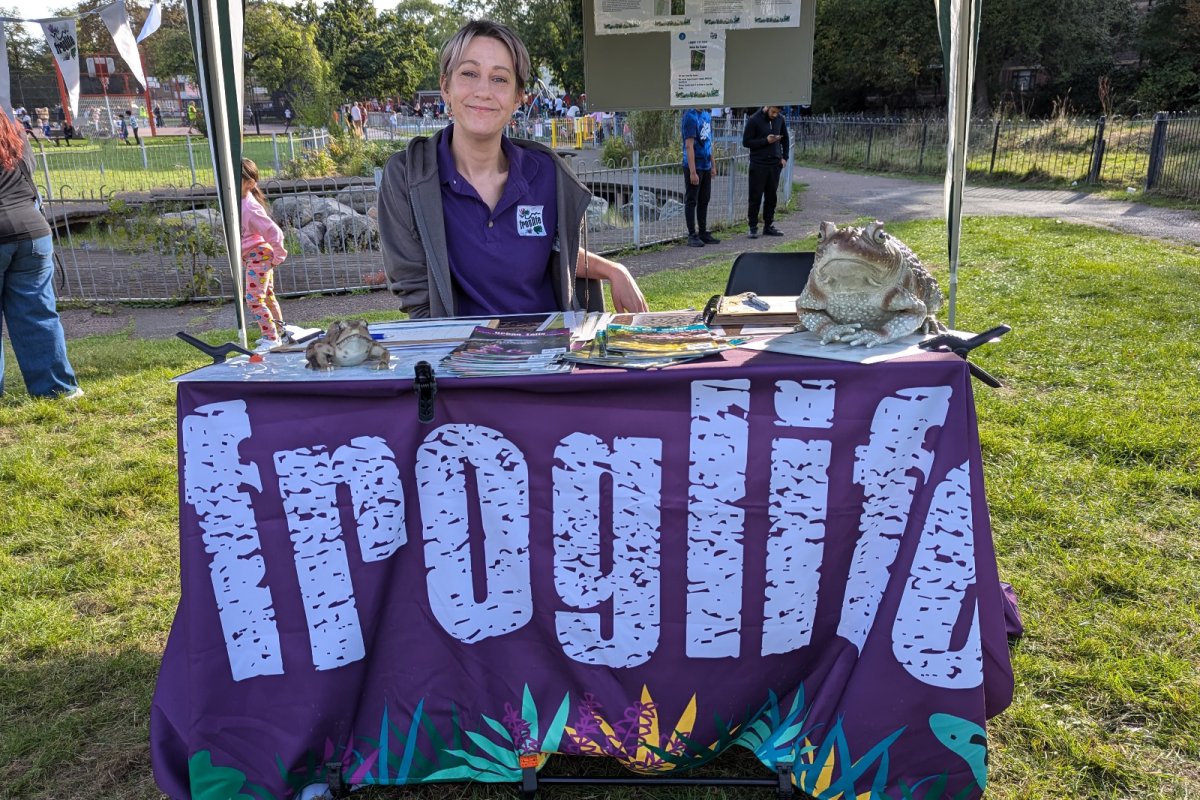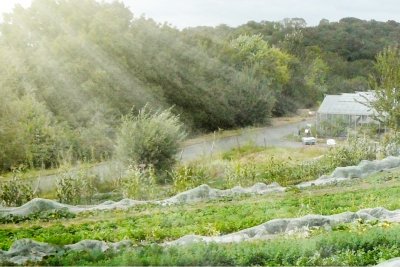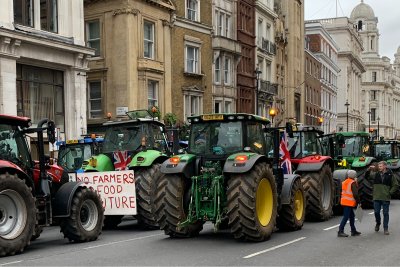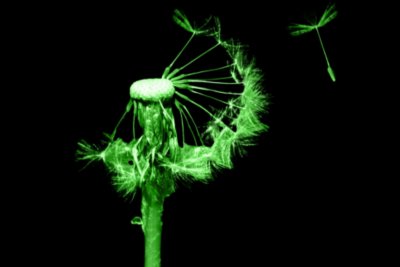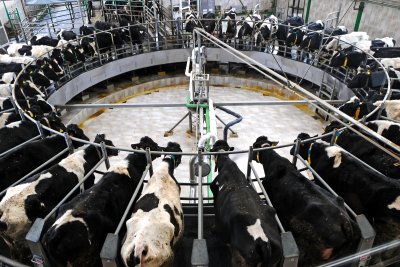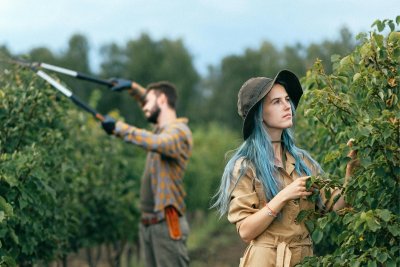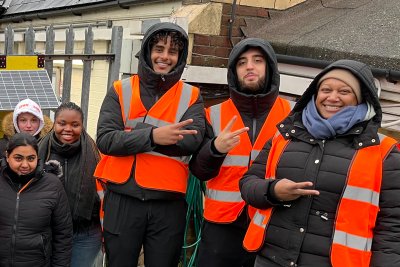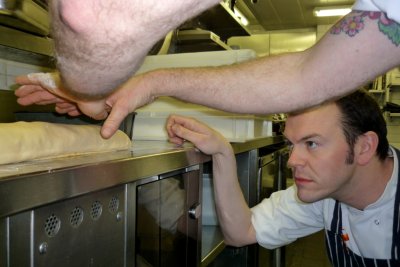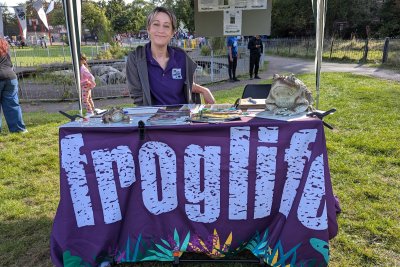 Rose Williams FrogLife trainee. Credit: Rose Williams | FrogLife
Rose Williams FrogLife trainee. Credit: Rose Williams | FrogLife
FrogLife is making a splash in south London
Rose Williams, FrogLife's London Blue Chain Project Trainee, shares news on an ambitious pond-building project that's been making splash around South London, along with her passion for nature conservation, insights into how food growers make the perfect amphibian defenders and how you can get involved.
At Froglife, we’re a little bit in love with allotments and community gardens. Froglife work with communities to conserve native amphibians and reptiles in the UK, and whether you know it or not, growers are a vital part of creating and sustaining habitats for these often overlooked species.
One of the best possible things you can do to improve biodiversity in your growing area is to build a wildlife pond. The Natural History Museum found that ponds support more freshwater life than any other freshwater habitat in the UK. From beetles, dragonflies, birds, bats and hedgehogs, to frogs, toads and newts, all benefit from access to these super-chargers of our natural environment. Because as gardeners know: water + sunlight = life.
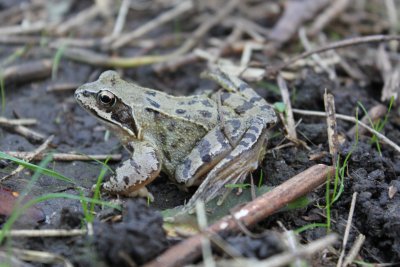
This year we launched a major new project – The London Blue Chain – across south east London (Lambeth, Southwark, Lewisham, Greenwich, Bromley and Bexley) to build 100 new ponds and work with thousands of people to improve wildlife habitats and enjoy nature! It will run for three years, and there are loads of ways of getting involved.
Urban growers and urban conservationists have a lot in common. We both see an unloved, neglected patch of land in our communities and see its potential to be transformed into a place where people, plants and wildlife can thrive. We also know that being outdoors, and feeling connected to your local environment brings health benefits even beyond a vine of home-grown tomatoes.
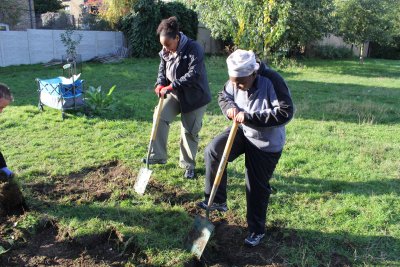
And urban spaces can be very wild and green! Far from being a grey, tarmac-covered dead-zone, London is one of the greenest cities in the world. The closer you look, the more pockets of green you find. Not just large Victorian parks, but community nature gardens, growing beds, and orchards. Seeing more of these mini areas pop up around south London has been inspirational. It just goes to show how much power people have to change their environments for the better.
Froglife will be engaging with lots of growing spaces over the next 3 years – in fact we’ve already built ponds at allotments in Brockley and Lenes Abbey, and Rouel community orchard in Southwark. If you think your space could benefit from a pond, why not get in touch? We can provide materials, such as pond liner, expertise, and even muscle power and tools to build it!
Ponds are an essential part of a healthy ecosystem and your garden will benefit in many ways by attracting more life to your site. Microorganisms turn our organic waste into nutritious compost. Pollinators help plants to reproduce. Even slugs can be helpful! I’ve never looked at slugs in quite the same way since someone pointed out to me that they’re pollinators too.

Many of our native amphibian and reptile species are also well known as friends to the gardener. Smaller creatures, such as frogs, toads and slow worms, will happily eat some of the slugs and snails that plague us in wet years. So it’s a win-win for nature and for us humans!
The London Blue Chain is a busy little project. As well as pond building, we run sessions in schools, create art, run workshops for adults, host volunteering days, join community events, and more!
If you’d like to learn more about the project, check out their web page. If you’d like to get involved, join FrogLife's monthly mailing list, or build a pond, email londonbluechain@froglife.org.
Capital Growth: Connecting a network of London growers.
Sustain
The Green House
244-254 Cambridge Heath Road
London E2 9DA
020 3559 6777
sustain@sustainweb.org
Sustain advocates food and agriculture policies and practices that enhance the health and welfare of people and animals, improve the working and living environment, promote equity and enrich society and culture.
© Sustain 2025
Registered charity (no. 1018643)
Data privacy & cookies
Icons by Icons8
